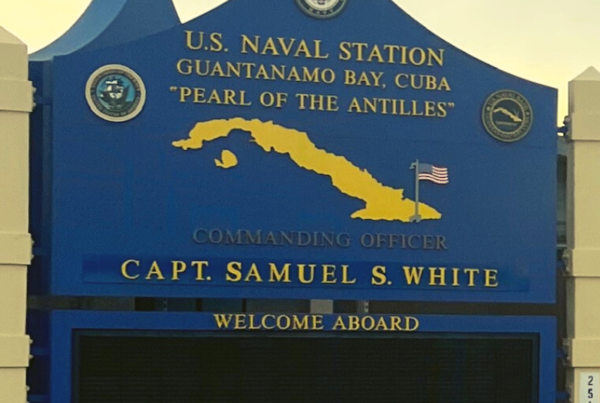At first glance it may seem counterintuitive that the federal government and unregulated, encrypted currencies are likely to be close partners. However, the Fed is considered one of the world’s biggest, if not the biggest holders of the original cryptocurrency, Bitcoin.
Here’s why.
First reported in 2013, the FBI controlled more than 144,000 bitcoins, valued at $100 million. Another FBI-linked address revealed another 30,000 bitcoins, bringing the total to around $120 million.
This was largely due to the FBI shutting down the illicit Silk Road online drug market in the early spring of that year, and the subsequent seizure of the digital currency owned by its operator Ross Ulbricht, a 30-year-old Texas man.
Nevertheless, it wasn’t until late 2020 that the FBI’s seizure was revealed to be larger than previously estimated. An anonymous entity drained a digital wallet to the tune of $1 billion in bitcoin, later revealed to have been the U.S. government.

A press release from the Department of Justice claimed to have recovered upwards of 70,000 coins with the aid of a hacker termed “Individual X” as part of a civil forfeiture case aimed at the Silk Road marketplace. The court documents indicate that Ulbricht, who is currently serving more than a double life sentence over narcotics conspiracy charges, threatened “Individual X” to return the crypto, but the hacker refused.
This individual later cooperated with the FBI and turned over the bitcoins, leaving their digital wallet with over a billion dollars in bitcoin.
But this is not the first time the FBI has been able to bolster its bitcoin balance.
An additional $2.3 million in cryptocurrency was seized by U.S. authorities last year, believed to be connected to a string of ransomware attacks perpetrated by a Russian national in St. Petersburg. In recently released court documents, it was revealed that the individual charged in the case, Aleksandr Sikerin, was formerly connected to a notorious ransomware group called REvil that has caused tens of millions of dollars in damages to American companies.
U.S. law enforcement announced that it had captured over $6 million from another suspected Russian national and REvil worker a week before Sikerin’s wallet was captured. However, it was not specified if it was crypto that was confiscated.
And that is just the tip of the iceberg.
What has the U.S. government done with its confiscated digital currency that has continually made it one of the crypto chiefdoms?
The apparent lack of a mandate in the matter makes it all a little murky. Here is what we do know. When a criminal case is closed, the U.S. Marshals Service, another agency within the Department of Justice, is the agency that handles the funds.
The Marshals publicly auction off the crypto stockpiles, treating sales as any other civil forfeiture, exchanging them for fiat currency. This government-issued coin is not backed by a commodity. It is common for the selloffs to occur alongside seized physical assets, such as boats and cars.
Thus, profits are kept by the government, contributing to its budget. The proceeds are split between the Treasury Forfeiture Fund and the Department of Justice Assets Forfeiture Fund. The liquidated digital money can then be used by Congress and earmarked for various government initiatives. The government, however, has yet to develop a centralized database of crypto seizures.
With the massive amounts of crypto that pass through government hands – well into the billions of dollars – the U.S. General Services Administration (GSA), an independent federal agency created to oversee and support government operations, also manages crypto that has been seized before auction. Additionally, the DoJ has also awarded contracts to various private blockchain platforms to act as “custodians” of impounded or forfeited goods.
In fact, those who have won blockchain-enabled monies in years past have made significant gains. Consider prominent venture capitalist Tim Draper, the sole winner of a government auction in 2014, who scored 30,000 bitcoin for $19 million, and which are now worth over one billion dollars.
But because most crypto addresses are not openly identified, including those belonging to the U.S. government, it is hard to precisely determine where Washington ranks in the list of wealthiest crypto owners. Yet chances are that the feds give the obscure “Satoshi Nakamoto” a run for their money.
The pseudonym for the person or persons who developed Bitcoin back in 2008 is believed to store their wealth in a multitude of digital wallets, making them one of the richest individuals on the planet with a net worth exceeding $73 billion.






